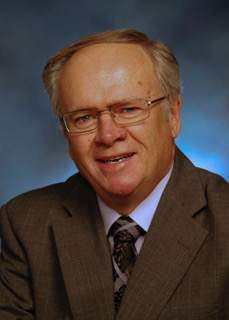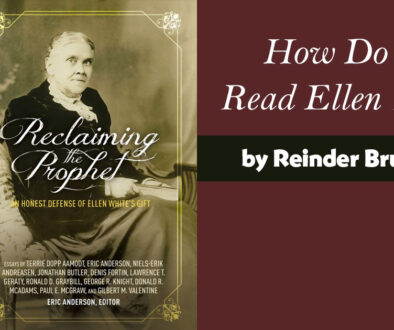Are You Living in an Information Echo Chamber?
by Robert Crux | 4 April 2024 |
Echo chambers can be tricky to recognize—especially when you’re in one. And once you are in one, it can be hard to leave. The echo chamber’s belief system takes over and your mind is almost oblivious to any other sources of information or contrary viewpoints.
Echo chambers happen when insiders come to distrust everybody on the outside of their ideology, worldview, or power structure. Echo chambers are especially dangerous places for angry, aggrieved, and militant people who can be exploited by unscrupulous politicians and extremists. These followers can be influenced to use intimidation and violence against those who have different political viewpoints or contrary opinions. Those outside the echo chamber are hated simply because they exist.
Partisan echo chambers
Partisan echo chambers can be comfortable places for people who want to live in an environment where they only encounter information or opinions that reflect and reinforce their own. It’s too easy to be friends with those friends that only follow people you agree with, to only listen to the channels of opinions that align with yours, to find social media apps that will target information based on what you have liked in the past and have filtered out any diverse viewpoints or contrary opinions.
Living in a partisan echo chamber prohibits you from engaging in the actual merits or flaws of an argument. Echo chambers are resistant to fact-checking but instead choose to use disinformation that can be largely or partly true, to make it more credible to insiders.
A new study by Berkeley Research, reported by Edward Lempinen (2023), says that
a startling number of Americans are in “partisan echo chambers,” where they only consume TV news that reinforces their existing political and social biases….
Another study by Berkeley political scientist David E. Broockman and Joshua L. Kalla of Yale University found that many Americans are trapped in a partisan echo chamber by refusing to watch or even consider listening to TV/cable news programs that do not align with their political and social views. The division is so pronounced, according to a 2019 Pew Research Center Study, that
fully 73% of the public say that most Republican and Democratic voters not only disagree over plans and policies, but also disagree on “basic facts.”
Politicians have become so calcified in their partisan echo chambers that they believe few – or no – good ideas could ever come from the other party.
Thor Benson in WIRED magazine cites Magdalena Wojcieszak:
Because these people are so politically involved, they have a disproportionate influence on American politics. They’re often the loudest voices in the room. [Wojcieszak] says people who are politically active like to have their views confirmed, so they can end up following accounts that align with their views and end up in echo chambers…
Christian echo chambers
For Christians in echo chambers, the truth is not enough. Many have been programmed to live in fear and anxiety rather than faith. An ideology driven by the Christian nationalist movement promotes suspicion and fear of multiculturalism. The fear of America’s becoming increasingly a multicultural nation and the fear of white Christian evangelicals’ becoming a minority have created an echo chamber that calls for action.
For many Christians living in echo chambers, the cultural wars are seen as spiritual warfare, and winning political/cultural talking points is their Christian duty.
Lynn Martin in “Christianity needs to step out of the echo chamber” writes
I feel like we are drowning in a sea of talking points that offer little value for the world beyond our echo chamber; yet we mindlessly repeat them, as if their very utterance bears a magical power. Jesus usually bears the brunt of this theological malpractice.
Echo chambers cater to Christians who have a need to be right and certain about their beliefs. Says John Shelby Spong,
all religion seems to need to prove that it’s the only truth. And that’s where it turns demonic. Because that’s when you get religious wars and persecutions and burning heretics at the stake.
Can you leave?
The echo chamber dilemma reminds me of the Eagles’ classic hit “Hotel California”(1976), the key refrain of which says, “You can check out any time you like but you can never leave.” Too many Americans are trapped in echo chambers and find it too difficult to leave or escape. In order to keep you hooked on their service, social media providers use algorithms that keep you in the echo chamber that rewards you with more of what you like—intensifying the echo chamber effect even more.
Yet living in an echo chamber can lead you to overlook warning signs and other important information. This is the question: if the only things you ever read or hear or see are the things you agree with, how much are you really growing? It turns out that we need critical reasoning skills and the ability to reflect on our decisions to really see ourselves honestly.
Dwelling in a political echo chamber or a church echo chamber, where you only encounter people who agree with you, is hardly conducive to a healthy democracy or a healthy church.
 Robert D. Crux, Ed.S, worked as a teacher, principal, and superintendent of schools over a period of 35 years in Adventist education before retiring in 2016 to Lawton, Michigan, where he enjoys writing, reading, biking, model railroading, and, most of all, his grandchildren.
Robert D. Crux, Ed.S, worked as a teacher, principal, and superintendent of schools over a period of 35 years in Adventist education before retiring in 2016 to Lawton, Michigan, where he enjoys writing, reading, biking, model railroading, and, most of all, his grandchildren.
To comment, click/tap here.




